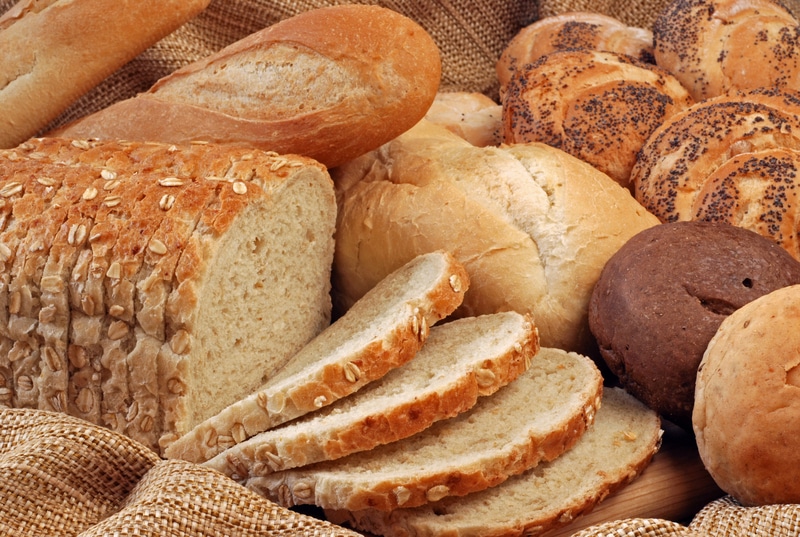
Bread is one of the most common food staples in every household because they are affordable and readily available in the grocery store. In addition, the bread is extremely convenient to consume and you can enjoy it on the go. However, many people worry about bread sticking to their teeth and wonder about the reason behind it. So, with this article, we are sharing the reason behind bread sticking to the teeth as well as the tips to avoid such instances!
Why Does Bread Stick To My Teeth?
Reasons Behind Bread Sticking To The Teeth
In most cases, the bread sticks to the teeth if you are eating white bread. It’s common for people to struggle with this issue when they eat a dinner roll or a sandwich. It is known as fermentation. That’s because the bread feels sticky when the saliva creates sugar when it comes in contact with the processed carbohydrates of bread. In addition to white bread, crackers and cookies can also stick to the teeth because of the same reason.
This fermentation process can actually make a habitat for acid and bacteria, which results in the erosion of tooth enamel. For this reason, many people have shifted to using whole wheat bread because white bread causes this issue. In simpler words, the fermentation process can result in bread sticking to the teeth.
Tips To Avoid Bread Sticking To The Teeth
Now that we have mentioned the reason behind bread sticking to the teeth, you also need to consider some tips that help the sticking issue. To begin with, it’s recommended that you start eating whole wheat bread because white bread usually sticks to the teeth. On the other hand, if you cannot shift to wheat bread, we are sharing how you can avoid the issue.
- Rinsing After Eating
First of all, if you want to dislodge the bread after eating, you have to swish water in your mouth. In most cases, the longer the bread is stuck to the teeth, the harder it becomes to take it off. For this reason, swishing is recommended because it can remove the deeper bread pieces as well.
- Brushing
Swishing surely produces enough pressure to remove bread that’s stuck to the teeth. However, if it’s not helping, we recommend that you brush your teeth because the stubborn bread might need an extra push. So, after eating the bread, you should brush your teeth gently and make sure you floss before brushing as it helps loosen up the stuck food particles.
- Flossing
It is common for people to use the same old toothpicks to dislodge stuck bread from their teeth. However, it doesn’t always work, which is why we recommend that you invest in single-use flossers. These flossers are made from plastic and have a small thread/floss strung from one side. Since the flossers are made from plastic, they don’t bread as compared to wooden toothpicks that give up too easily. In addition, the plastic flossers won’t break into small pieces, which means your gums will be safe.
- Aligners
In case you are using whole wheat bread but it is still getting stuck to the teeth, there are chances of gaps between the teeth. These gaps can catch the food particles and become nearly impossible to remove. Keep in mind that these gaps not only make the eating experience frustrating but also cause tooth decay (cleaning the teeth won’t be easy). So, if you struggle with gaps, it’s recommended that you get aligners as they help tighten the teeth.
On the other hand, if there are cracked teeth or you have cavities, they can also lead to food particles sticking. If that’s the case, every food will stick to the teeth, including bread. The only solution is to visit the doctor and get the teeth sealed in case of cracks or repaired in case of cavities.
The Bottom Line
The bottom line is that the white bread can stick to the teeth because they induce the fermentation process. The easiest solution is to shift to whole wheat bread and make sure you floss and brush your teeth right after eating to prevent this issue. Last but not least, visit the dentist regularly to keep the teeth healthy!